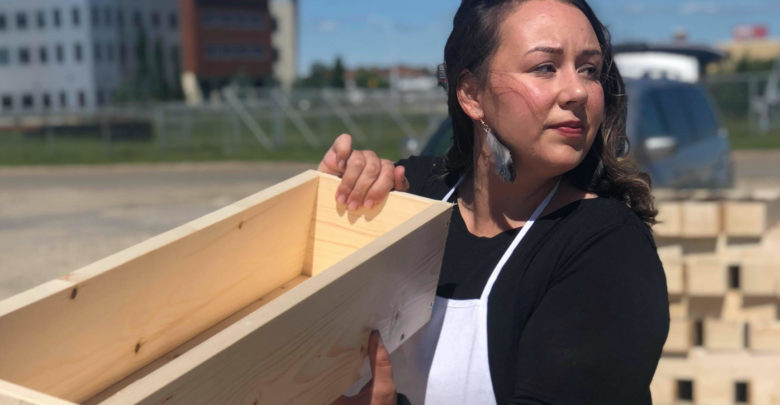Indigenous U of A Law student achieves dream of attending UN
Casey Caines, an Indigenous first year law student, joined youth from around the world in presenting their ideas at the UN National Assembly.
 Rachel Narvey
Rachel NarveyCasey Caines, a Cree and Slavey first-year law student at the University of Alberta, was selected to participate in a United Nations (UN) Youth Summit, fulfilling her goal of representing Indigenous Peoples at the UN.
Since mid-September, Caines had the opportunity to participate in discussions with other youth delegates around the world about key issues. The main event — featuring performers and discussions with key leaders — would typically take place in New York, but will take place virtually due to COVID-19. The main event was originally to take place on October 24, but was postponed until December 5 due to technical difficulties.
Despite this setback, Caines has already found the experience to be inspiring and fulfilling.
“When you’re doing this kind of community-based work you can feel a bit small, it can be hard to see how you could make a difference,” she said. “Then when you meet in these big structural organizations, you see that yes, you are just one person, but you’re one person on a team that you didn’t know existed.”
Caines’ dream to attend the UN was something she had reflected on in a blog post a year prior. While she set the intention in 2019, she pictured the goal as only fulfillable in the long term, something that could be achieved ten or fifteen years down the line at most.
During her discussions with other youth delegates, Caines shared that one of the things she is advocating for is reducing inequality. She highlighted that this goal is a part of the UN’s 17 sustainable development goals to reach by 2030.
“For me as an Indigenous law student, I’m hyper-aware of inequality,” Caines said. “I know that very few Indigenous students make it to law school, very few Indigenous students finish law school. We’re underrepresented in law school, and in post-secondary in general.”
Caines highlighted that she was inspired to read about the experiences shared by recent law graduate Danielle Morrison, a Treaty 3 member of the Anishinaabeg of Naongashiing. She sees herself and Morrison as agents of change.
“I already have lost the rose coloured glasses—but I also have hope when I see that a lot has changed in the last sixty years,” she said. “My grandmother couldn’t even vote or attend university, and now I’m a first-generation law student.”
For Caines, one aspect of the UN forum that has added to her passion for change has been meeting some of the forum’s youngest participants.
“I’m at the tail end of youth, I’m 29,” she said. “Seeing 18 year-olds [at the forum], and learning about all the work they’re already accomplishing, I’m so hopeful for what’s going to happen over the next ten years to hit that 2030 goal.”
Some of that work for Caines involves finding ways to increase access to education and implement restorative justice in order to focus on community healing, goals that she sees as related to sustainable development.
“These issues are interconnected and so they’re intersectional as well,” Caines said. “It’s important to focus on sustainable development because we know that inequalities arise from inequalities regarding land. It’s about who has access to property, and who has access to wealth.”
“Those issues are what we’ve been looking at for 2030: how we address those inequalities on a very broad level, and how we invent policies that people are able to adopt globally that benefit everyone.”




